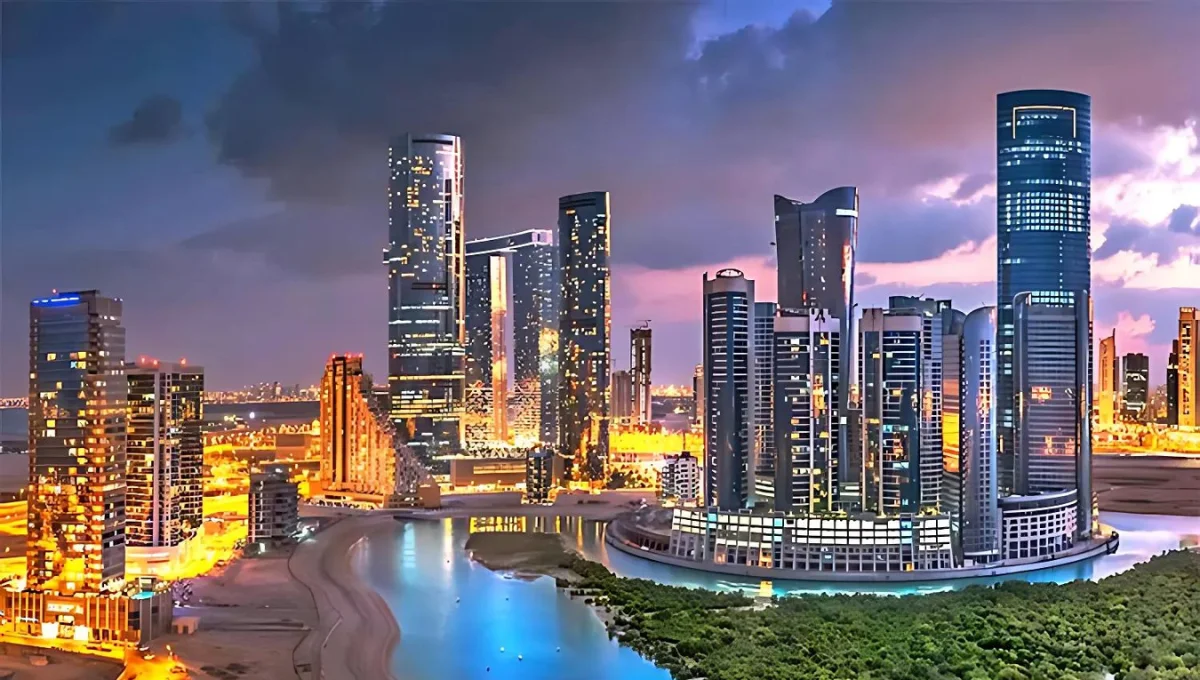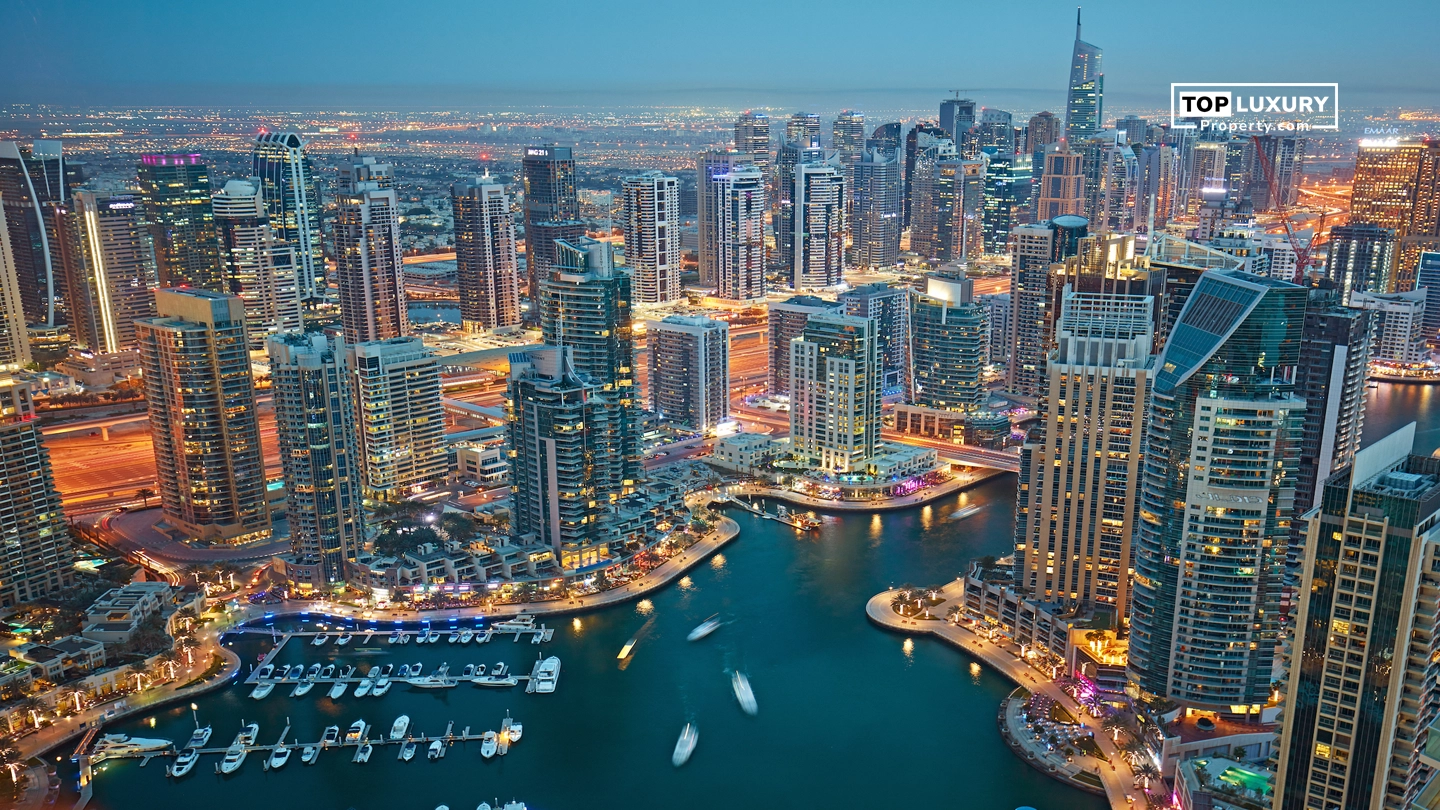This makes it one of the most vibrant markets globally. The city’s unique blend of modern infrastructure, cultural heritage, and ambitious projects continues to attract investors worldwide. As we look ahead, what does the future of real estate in Abu Dhabi hold? This blog will explore the trends, data, and expert insights shaping the city’s real estate market in 2024 and beyond.
Overview of Abu Dhabi’s Real Estate Market in 2024
In the first half of 2024, Abu Dhabi Real Estate Market has grown significantly. The sector has seen Dhs 36.2 billion in transactions, reflecting increased confidence from both local and international investors. Several factors contribute to this growth, including economic diversification efforts, regulatory reforms, and enhanced transparency in property transactions. In H1 2024, the price per square foot has also increased by 5.87%, reaching AED 1,332 from AED 1,258 in H2 2023
New government policies, such as 100% foreign ownership in certain zones and a focus on sustainable developments, are expected to sustain this growth in 2025. Its well-established infrastructure, strategic location, and economic free zones support Abu Dhabi’s growth in real estate.
Key Data Points
- Total Real Estate Transactions: Dhs 36.2 billion
- Total FDI: AED 3.28 billion
- Top Locations: Yas Island, Saadiyat Island, Al Reem Island, Al Raha Beach
The increase in foreign direct investment (FDI) has also contributed to the market’s success. Countries like India, Russia, and the UK have played significant roles in boosting Abu Dhabi’s real estate sector
Key Drivers Behind The Scene
a. Economic Diversification
The Abu Dhabi government has prioritized economic diversification, reducing its reliance on oil revenues. Real estate is a key sector in this strategy. Initiatives like the Ghadan 21 program, launched in 2018, provide strategic funding for real estate development, technology innovation, and infrastructure improvements
b. 100% Foreign Ownership of Property
Policies allowing 100% foreign ownership of property in certain freehold zones have been a major driver of investment in 2024. This has opened the market to international investors, driving demand for high-end residential units, commercial spaces, and mixed-use developments.
c. Sustainability and Smart Cities
The Abu Dhabi government is focusing on sustainability and green urban developments. Projects like Masdar City aim to be hubs for renewable energy and sustainability. This shows the city’s dedication to eco-friendly living. Future real estate projects will integrate more sustainable practices. This aligns with Abu Dhabi’s goal of Net Zero by 2050. Moreover, Abu Dhabi has an Estidama Pearl Rating System for new buildings. It’s all about sustainability. By 2024, over 260 buildings have gotten Pearl Ratings. They show a big commitment to being green.
d. Infrastructure Development Projects
Infrastructure is key for real estate growth. The Abu Dhabi government is investing AED 66 billion in transport and urban projects in 2024.
Some major projects include:
- Abu Dhabi Metro and Light Rail: Set to start by 2025, it will link important parts of the city, making it easier to get around.
- Expansion of Abu Dhabi International Airport: It aims to handle 45 million passengers a year, boosting tourism and business travel.
- Al Falah Highway Expansion: It will improve travel between suburbs and the city center.
These projects make life better for residents and increase property values in connected areas.
d. Real Estate Regulatory Framework
The Abu Dhabi Real Estate Centre (ADREC) plays a key role in regulating and promoting the real estate sector. It ensures transparency, manages transactions, and maintains a stable market.
Residential Real Estate Outlook: Demand for Affordable and Luxury Properties
Abu Dhabi’s residential market is booming, with a demand for both affordable and luxury properties. It caters to a wide range of buyers, from expatriates seeking affordable apartments to HNWIs investing in luxury villas.
a. Affordable Housing Market
Affordable residential units, such as those in Al Ghadeer and Al Reef, are popular among expatriates and young professionals. These areas offer strong ROI, with Al Ghadeer seeing an impressive 8.52% ROI in 2024. Experts predict that these areas also perform very well in near future.
| Location | Average Apartment Price | ROI (%) |
|---|---|---|
| Al Ghadeer | AED 556,000 | 8.52% |
| Al Reef | AED 785,000 | 7.89% |
| Al Reem Island | AED 1.27 million | 6.57% |
The demand for affordable properties is expected to rise. This is driven by Abu Dhabi’s growing expatriate population and the influx of professionals. They are attracted by the city’s booming sectors like finance, healthcare, and tourism.
b. Luxury Market
On the other hand, Abu Dhabi’s luxury real estate market is thriving. Areas like Saadiyat Island and Yas Island lead the way. Prices for luxury villas on Yas Island rose by 10.3% in the first half of 2024. Saadiyat Island is known for its luxury beachfront properties and cultural institutions like the Louvre Abu Dhabi. It remains a top choice for HNWIs. Villas here offer a unique blend of opulence and high investment value. Yas Island’s appeal is enhanced by its proximity to attractions like Ferrari World and Yas Marina Circuit.
| Location | Average Villa Price | Price Increase (H1 2024) |
|---|---|---|
| Yas Island | AED 4 million | 10.3% |
| Saadiyat Island | AED 8.73 million | 6% |
Commercial Real Estate Outlook: Growth in Office and Retail Spaces
The commercial real estate sector in Abu Dhabi is expanding, driven by finance, technology, and healthcare sectors. Demand for prime office spaces is high, with Al Maryah Island and Al Reem Island being favored. These areas are home to major financial institutions and business centers.
a. Office Space
In 2024, office rents saw a 10% increase year-over-year. This reflects the premium demand for office spaces. Abu Dhabi’s business-friendly policies, free zones, and tax incentives attract multinational corporations. Office occupancy rates are expected to exceed 98% in core hubs like Abu Dhabi Global Market Square (ADGM).
b. Retail Space
The retail sector is rebounding, with mall rents expected to rise by 2-4% by the end of 2024. The resurgence in consumer spending and new mixed-use developments have boosted demand for retail spaces. Key developments like Hudayriyat Island and Al Qana will offer a mix of retail, residential, and leisure options, catering to Abu Dhabi’s growing population.
The Rise of Off-Plan Projects
Abu Dhabi’s off-plan market is gaining momentum, with several large-scale projects set to launch by the end of 2024. Off-plan properties offer buyers the chance to purchase units before construction is complete, often at lower prices. This is highly appealing to foreign investors looking to benefit from future property value appreciation.
a. Major Off-Plan Projects
The emirate is seeing a surge in off-plan sales, with over AED 10 billion in projected transactions for 2024. Key off-plan developments include Fay Al Reeman 2, Saadiyat Grove, and Yas Acres, providing both affordable and luxury options.
b. Benefits of Investing in Off-Plan Properties
- Lower Entry Prices: Off-plan properties are generally sold at lower prices compared to completed units.
- High ROI: Off-plan properties, such as those in high-demand areas like Saadiyat Island and Yas Island, offer high ROI upon completion.
- Flexible Payment Plans: Developers often provide attractive payment plans, making it easier for investors to manage their finances.
Technological Innovations Shaping Real Estate
Technology is changing real estate, and Abu Dhabi is leading the way. It’s using the latest tech to make things more efficient and better for customers.
But how does this tech impact the real estate market? Let’s take a closer look.
a. PropTech Adoption in Property Management
Property Technology, or PropTech, is about using tech and platform economics in real estate. It’s a big deal in the UAE.
A 2023 report by KPMG showed that 60% of real estate firms in the UAE use PropTech. They use it for:
- Smart Building Management Systems: These systems use IoT for energy, security, and maintenance.
- Blockchain for Transactions: It makes transactions clearer and cuts down on fraud.
- AI-driven Analytics: This helps with market forecasts and understanding customer behavior.
b. Virtual Reality in Property Viewing
The pandemic made virtual solutions more important. Virtual Reality (VR) is now a key tool for viewing properties.
Companies like Aldar Properties have started VR platforms. They let people see properties from anywhere in the world. This helps reach more investors, even those who can’t travel.
According to Statista, the VR in real estate market will hit $2.6 billion by 2025. Abu Dhabi is playing a big role in this growth.
Future Infrastructure Projects and Their Impact on Real Estate
Abu Dhabi’s real estate market is set for a transformation with upcoming infrastructure projects. These initiatives, led by the government and private developers, aim to boost connectivity and enhance amenities. They also aim to drive economic growth.
a. Hudayriyat Island
The development of Hudayriyat Island is a highlight for 2024. It will feature a massive urban park, cycling tracks, and leisure facilities. This project will increase demand for nearby properties.
b. Zayed National Museum
The Zayed National Museum on Saadiyat Island is set to open in late 2025. It will be a cultural and architectural landmark. The museum will attract tourists, boosting property values in the area
c. Al Qana
Al Qana is another significant project. It’s a mixed-use waterfront with residential units, restaurants, and entertainment venues. Al Qana will be a top lifestyle destination in Abu Dhabi.
D. Mubadala And Aldar Properties Partnered Project
This partnership will work together to own and manage valuable real estate in Abu Dhabi. They aim to manage assets worth over AED 30 billion, or about $8.1 billion. The deal will change the commercial real estate sector of Abu Dhabi because it includes a big retail platform worth AED 9 billion. This platform will bring together top shopping spots in Abu Dhabi. These include Yas Mall and The Galleria on Al Maryah Island . The partnership also plans to buy properties that make money in Masdar City. They will also work on new projects on islands near Saadiyat and Yas Islands.
Conclusion
The future of real estate in Abu Dhabi is bright and dynamic. Government initiatives, technological advancements, sustainability efforts, economic diversification, and innovative development trends drive the city’s growth.
For investors, the city’s commitment to creating a conducive environment for real estate growth is evident. The combination of legal reforms, infrastructural investments, and economic stability makes Abu Dhabi an attractive destination.
As a resident or a homeowner, the focus on quality of life, sustainability, and community living ensures that Abu Dhabi is not just a place to live but a place to thrive.
In the words of Sheikh Mohammed bin Zayed Al Nahyan, Crown Prince of Abu Dhabi:
“Our vision is to build a nation that offers prosperity and happiness to all its people, and real estate development is a cornerstone of that vision.”






